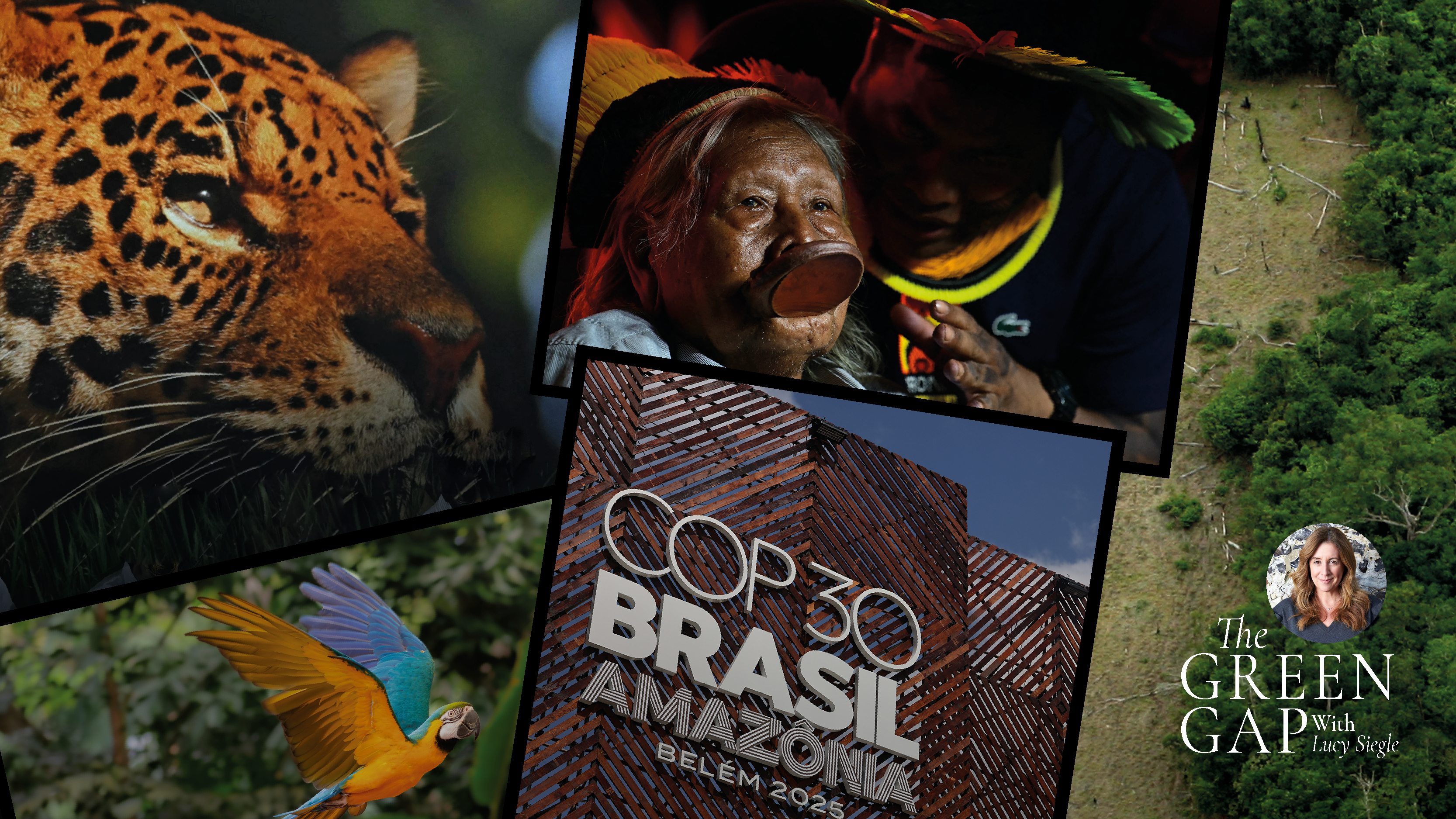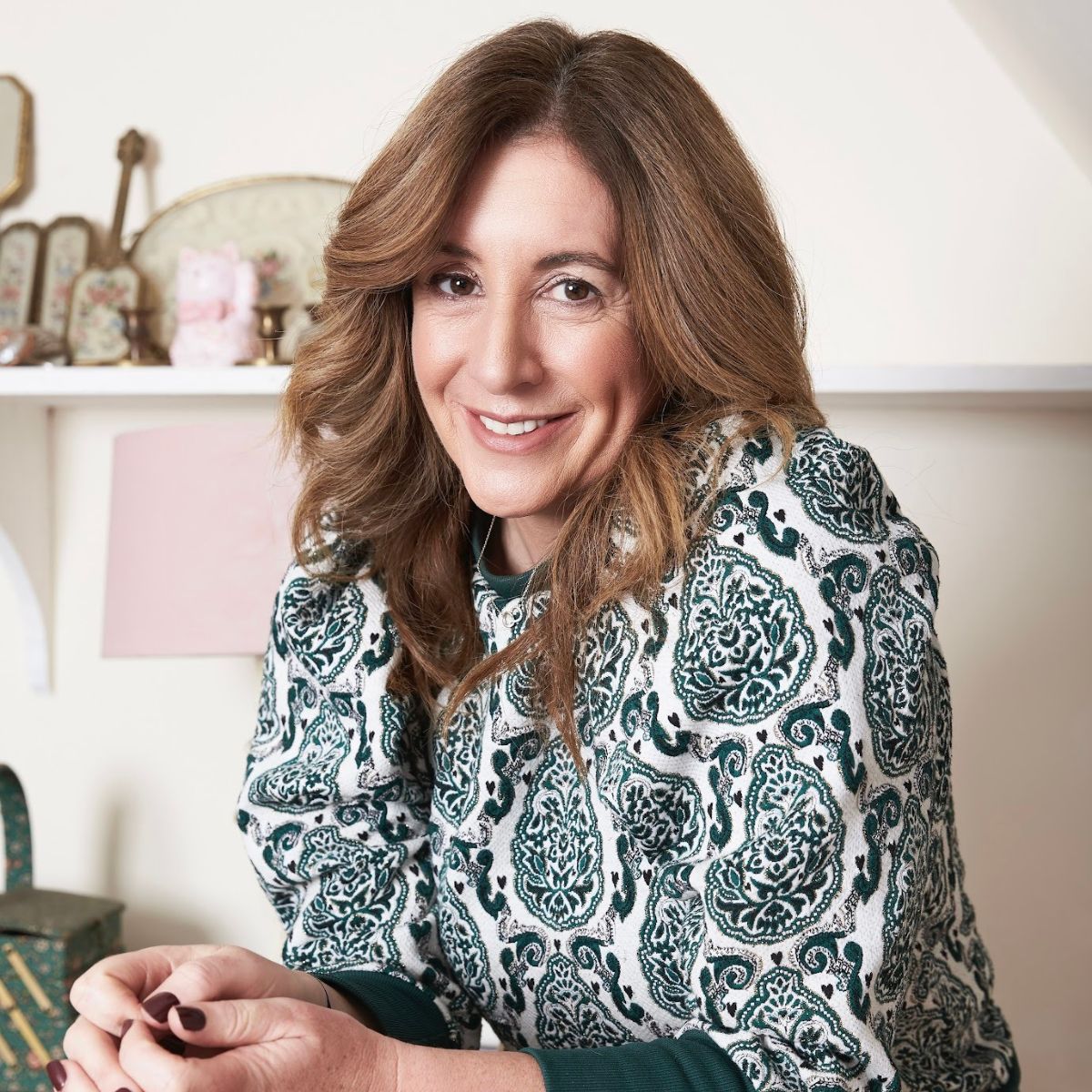As COP30 Kicks Off in Brazil — Why the Annual Climate Conferences Are Confusing, Chaotic, Exhausting, and 100% Necessary
Our sustainability columnist, Lucy Siegle, is back this month, discussing the confusing yet crucial yearly event that is COP.


Celebrity news, beauty, fashion advice, and fascinating features, delivered straight to your inbox!
You are now subscribed
Your newsletter sign-up was successful
I’m not in Belém, Brazil, for COP30, and surprisingly, that makes me a little sad.
As a specialist in the climate and nature crisis, I’ve been to multiple COPs (Conference of the Parties). From Glasgow to Dubai, I’ve held different roles: onstage hosting discussions on coral protection, through to last-minute, high-stress speech rewrites for VIPs – one time, I stuck script amendments on with eyelash glue. Necessity is the mother of invention, especially at COPs, when you’re often in a far-flung destination with the wrong currency for the coffee machine.
To be honest, every COP experience has included highs and lows where I’ve felt like I‘m trapped in a washing machine spin cycle, if laundry happened in a poorly air-conditioned conference centre on the other side of the world. But still, I’ve got terrible FOMO because this year's "forest COP," which is taking place in the Brazilian Amazon, is happening without me.
Pushing for real action and positivity > losing faith
I do understand why some have lost faith. I’m never quite sure about my own contribution. Did I achieve anything? Did the COP bring anything to the planet-saving table? You have to go back to COP21, the signing of the Paris Agreement, to see real action and positivity. That COP saw 196 nations agreeing to act on the science. 195 nations went on to ratify the agreement (Trump has signed an executive order to pull out of the agreement, but that isn’t effective until January 2026), working to bend the curve on greenhouse gas emissions and pivot to clean, renewable energy instead of burning fossil fuels. This would keep global temperature rise well below two degrees, aiming for 1.5, limiting damage in a way the biosphere could regenerate. What a glorious goal.
But as we know, subsequent COPs have failed to produce the global solidarity we need, while the environmental backdrop worsens. We’re significantly off track on the Paris goals. So I have sympathy for the “what’s the point in flying these people in?” social media critiques.
Yet, oddly, I remain COP’s biggest fan. These confusing, chaotic jumbles of policy, pressure, pleading, science, and speculation are challenging, but necessary. I dread to imagine what would happen without them. Do I think it’s all perfect? Definitely not. Reform is desperately needed. COP28 in Dubai in 2023 broke the record, with at least 2,456 fossil-fuel lobbyists attending. Considering we need fossil fuels to stay in the ground for planetary systems to survive, you can see how that’s awkward.
Will Brazil provide any answers?
Dubai COP28 is the subject of a new documentary, Colossal Wreck, by British dad-turned-climate-activist Josh Appignanesi, released to coincide with COP30. It’s part Lost in Translation, part Don’t Look Up, as Appignanesi navigates the Dubai climate “campus,” working groups where nature and women farmers are called “fungible assets,” cliquey aftershows, and luxury shopping centres, all while trying to understand the global cry for help and empty political posturing that is COP.
Celebrity news, beauty, fashion advice, and fascinating features, delivered straight to your inbox!
Ultimately, a beach session on whale song attended by Senator John Kerry provides a moment of profound purpose. “What was curated by that beachside was an act of listening. An attempt to commune with beings far older than us. And we were utterly transported. What will be left of us in 500 years?," he asks.
That is the question. Will Belem provide any answers? It looks challenging, to say the least. The world enters COP30 against a stark backdrop: 2025 is shaping up as the hottest year on record, with melting ice caps and extreme weather events like Storm Melissa devastating Jamaica.
Success will mean binding commitments, urgent climate finance, and tangible emission cuts that protect vulnerable communities. These things are hard. I want to manage expectations before the final agreement is “gavelled” next week. (COP30 is officially meant to close on 21 November, but COPs often overrun; the record is 44 hours, held by COP25 in Madrid).
Climate is a development challenge, not just an environmental one
I checked in with some of my most trusted climate colleagues to get a read so far. Christiana Figueres is a climate queen, the OG of COPs and one of the main architects of the Paris Agreement. This year, she’s attending as a commentator for her podcast Outrage & Optimism. She thinks this year’s COP might finally move from endless negotiation to real action, and she thinks they are necessary: “COPs were designed to support negotiations and legally binding agreements,” she said. “But because every nation is sovereign, there’s no environmental police. The only way to monitor progress is to keep each other accountable," she shares.
She calls COP30 an “implementation COP, where governments, businesses, and civil society show what they’re actually doing. The Brazilians are intent on putting adaptation, indigenous rights, and forestry at the centre — because we’re in the Amazon, in case you haven’t noticed."
Kate Findlay, WWF’s Chief Advisor for Forests, sends a message from Belém: “Brazil is hosting COP30 in the Amazon to remind the world that promises alone won’t save this forest — action will. The Amazon isn’t just trees; it’s home to millions of people and species and helps keep our planet livable. Now is the time to turn pledges into reality to end deforestation by 2030 — at this COP, WWF will look for wealthy countries to put real funding on the table to make it happen."
She goes on: "Here in the UK, we’re calling on the government to finally bring forward legislation so that products we buy in the supermarket don’t unwittingly contribute to illegal deforestation.” I think it’s so interesting that COP can sometimes push change in our own domestic lives, because supply chains are globalised.
My friend, Solitaire Townsend, a powerhouse sustainability entrepreneur known for straight talking, game-changing solutions, and occasionally being sweary, sends updates. Her luggage got lost, and she’s down to her last emergency Yorkshire teabag, but she sounds upbeat: “The real power of COP isn't just in the negotiating rooms with countries who despise each other, trying to come to a global agreement. It's also in all of the other events that happen at COP — in the blue zone, where the negotiators are, in the green zone, where the creatives are, in the city, where thousands of people are gathering. You get giant negotiations around billions of dollars, which are going into health, particularly at this COP.”
For Soli, this year feels different: “The atmosphere is a bit different than it's been in all the other COPs I’ve attended. There seems to be a big focus on people, rather than just on policy, portfolios, or money. This year, there’s a conversation about what impact climate has on poverty, jobs, and growth, and for countries like Brazil, India, and China, climate is a development challenge, not just an environmental one.”
As I fire off messages, pictures arrive showing indigenous protestors breaking through security to get to COP30. The sight of the people who protect the forest battling UN security says a lot. Some hold signs: ‘We don’t eat money, we want our free territory.’ They demand what all delegates should: an end to logging, evictions, and corporate commodification of resources. While recent COPs have increased indigenous participation, it often remains tokenistic. Their presence is an example of real accountability.
When the agreement is eventually gavelled, we must hope their influence is stronger than the lobbyists. Good luck, COP30. I’ll be watching and hoping.

Lucy Siegle has been described as the UK’s green queen. For nearly two decades, she has championed ecological issues and sustainability on prime-time TV and for major media brands, making them relatable and relevant to all audiences.
She's the author of five books, including Turning the Tide on Plastic. But it was her 2011 exposé of the human and ecological cost of the fashion industry, To Die For, that popularised terms including "fast fashion" and spearheaded the sustainable fashion movement. In 2015, it inspired The True Cost, a hit Netflix documentary.
Lucy co-founded the Green Carpet Challenge with Livia Firth and works on climate advocacy with musician and UN Environment Ambassador Ellie Goulding. Lucy is a trustee for Surfers Against Sewage and an ambassador for WWF UK and The Circle.